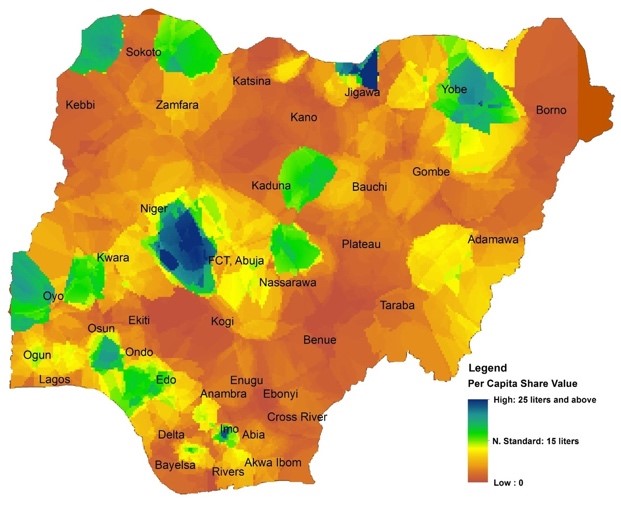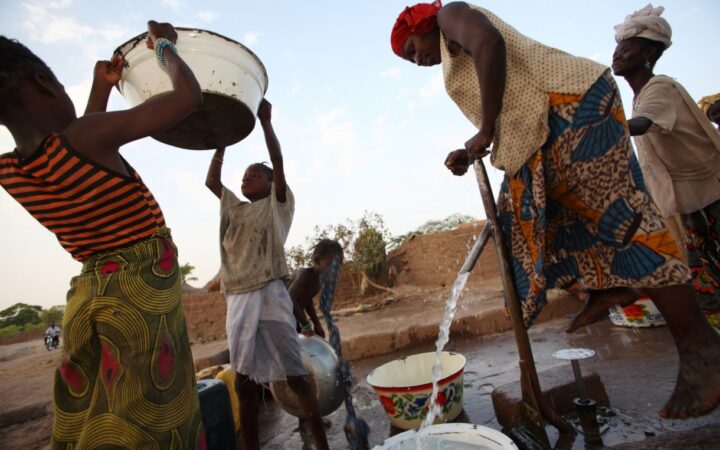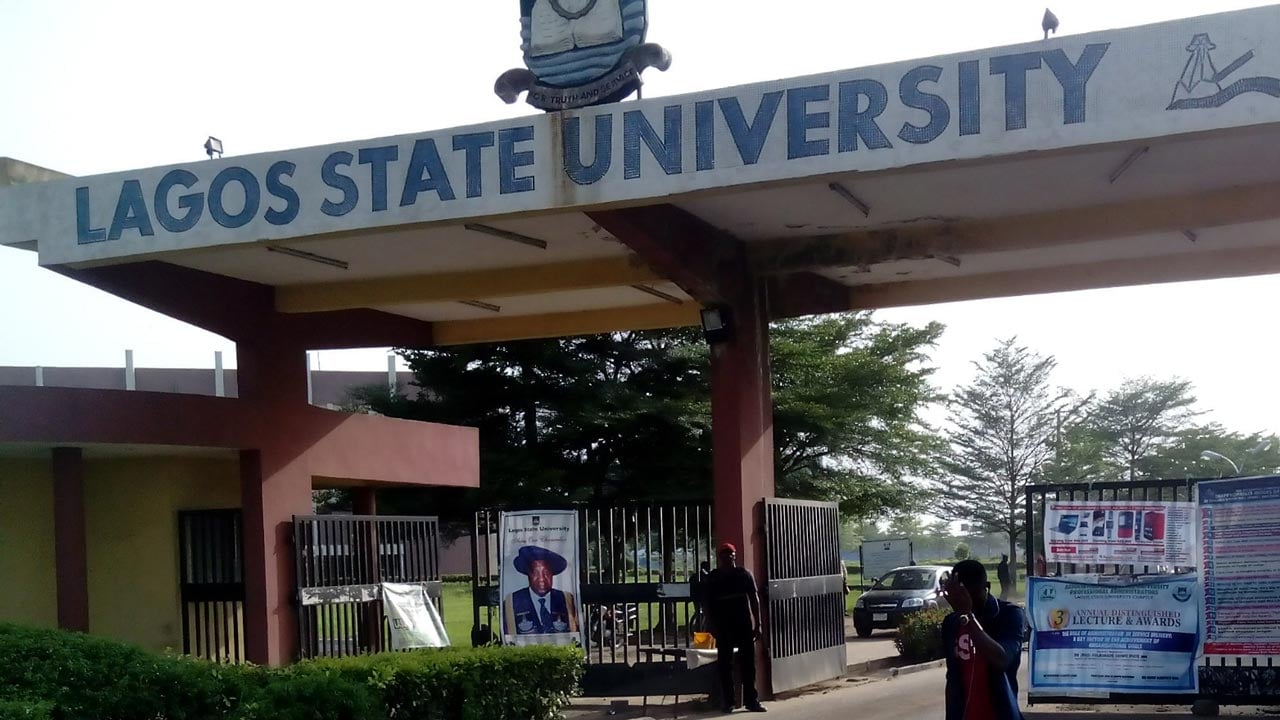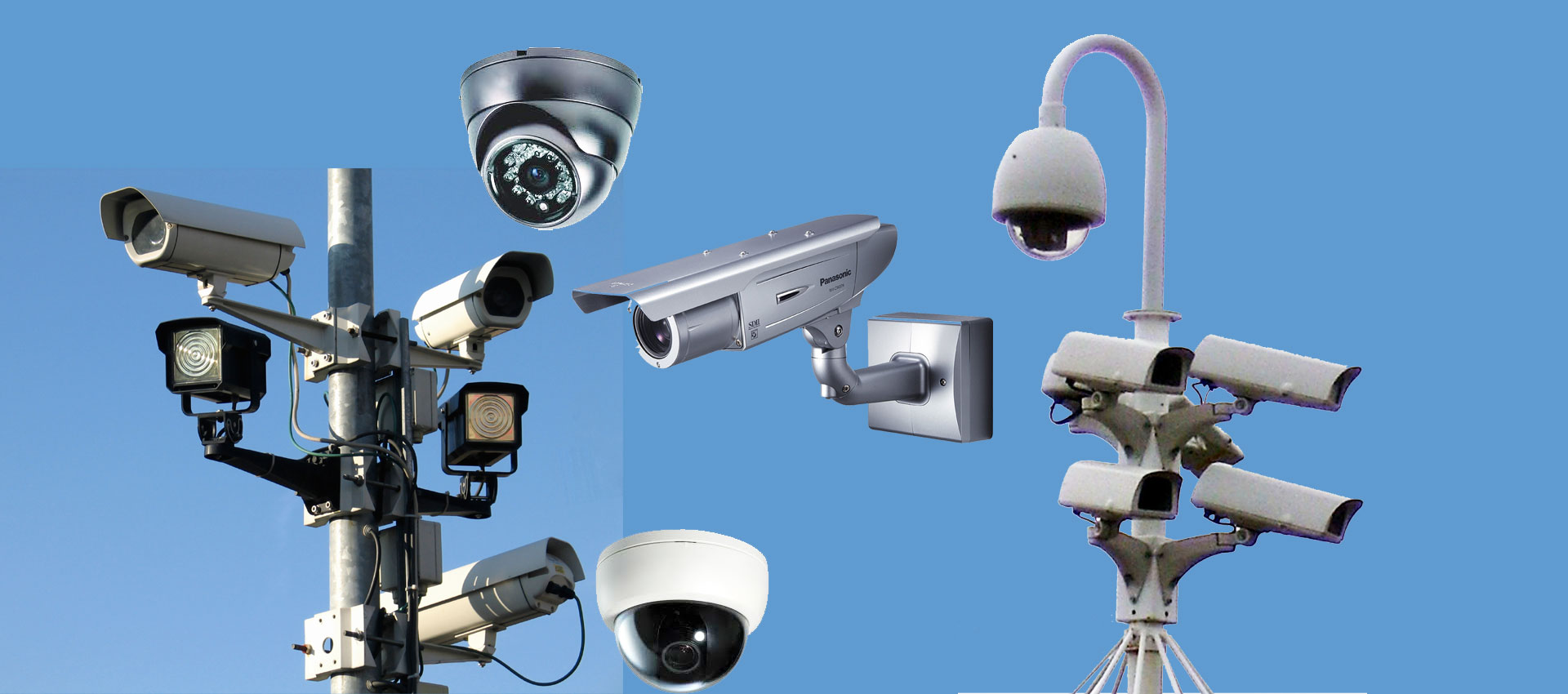BY ZAID JURJI AND RAPHAEL NWOZOR
The Nigerian government has declared a state of emergency in the Water, Sanitation, and Hygiene (WASH) sector. This action was spurred by the alarming findings revealed in the sector.
Under the aegis of UNICEF and its major funding partners, DFID and the European Union, and with technical support from the World Bank and WHO/UNICEF Joint Monitoring Programme team, the Federal Ministry of Water Resources in Nigeria launched the inaugural report of the annual WASH National Outcome Routine Mapping (WASH-NORM) in May 2019. This survey is in response to the desire of the National government to come up with a robust mechanism to bridge the data gap in the sector and iteratively generate evidence for decision support.
The WASH-NORM is the first-ever annual survey that collates vital WASH statistics from households, facilities, institutions and public places — many of which have never been tracked at the national level — to provide a holistic view of the WASH sector and monitor progress on WASH. The NORM assesses an all-inclusive 271 parameters cutting across the following thematic areas: WASH facilities coverage and functionality, service level, gender and inclusion, quality of services, user participation and satisfaction, as well as sustainability practices. This is remarkable when compared to the most recent Nigeria’s 2016 MICS, which covered only 26 WASH parameters.
Advertisement

By sufficiently disaggregating data by sub-sectors (urban, peri-urban, small towns, rural and itinerant communities), and including parameters which highlight accessibility, safety and risks associated with WASH services access for children, women, persons living with disabilities and other vulnerable groups, NORM draws attention to associated disparities and inequities in access to WASH services in Nigeria. This is to provide insight in the distribution of resource and in targeting the vulnerable groups in line with efforts to fulfill Nigeria’s commitments to the universal human rights to WASH services and in leave no one behind as enshrined in the SDGs.
The WASH NORM provides analysis to determine national coverage for access to any combination of basic water, sanitation and hygiene services in households and institutions. This analysis reveals an unchecked trend of widening gap between access to the various components of WASH – a situation that have undermined the impact of WASH services delivery in Nigeria. According to the survey, only 11% of Nigerians have access to basic WASH services, representing a drop of 57% from the proportion of the population who have access to basic water supply. Bridging the gaps between these components and ensuring integrated delivery of WASH services, has been identified by the government as one of the priority interventions towards maximizing returns on WASH investments. The Government has demonstrated this through renewed focus of sanitation and hygiene promotion as enshrined in the “Clean Nigeria Campaign” being pushed at the highest level of government.
Advertisement
WASH-NORM also provides a unique opportunity for measuring new composite indicators that go deeper to assess the quality of services provided. One of the indicators is “Dependability”, which is a measure of reliance of the system with regards to its ability to deliver water supply service in line with prescribe national minimum service standards.
Dependability analysis under NORM is done across three areas, namely: ‘Design and Configuration’, ‘Operation and Maintenance’ and ‘Functionality’ of systems. Results from dependability analysis (using 30 parameters) showed that most of the systems did not meet the minimum dependability requirement and as such are highly susceptible to failure.

Another composite indicator analyzed under NORM is “Adequacy”, which is a measure of the ability of a water system to sustainably provide a minimum of 12 liters of water per person per day (Per Capita Share – PCS) to those living within 500m from the water system. The 2018 NORM was able to make this calculation for rural areas only. The results showed that only 3% of the population in rural areas in Nigeria use improved water systems that meet the Adequacy threshold, while the average PCS is 4 liters per day.
WHY IS SUSTAINABILITY IMPORTANT?
Advertisement
The WASH NORM equally provides insight on sustainability of services in Nigeria. The survey revealed that with 34% of water points in Nigeria breaking down at least once each year and just about three quarters repaired when broken, Nigeria loses an estimated 9% of her water supply infrastructure annually. Consequently, more than 10 million Nigerians, lose access to basic water, partially or totally, due to poor sustainability. This is equivalent to a capital loss of US$350 million. This rate is comparable to the rate at which investments are being ploughed into the sector and could somehow explain why in the last decade, Nigeria has only been able to record an average of less than 1% annual increase in access to basic water supply despite sector investments. In fact, current sector investment practice is synonymous to conducting blood transfusion on a bleeding man. To achieve progress, there is need to stop the bleeding first by investing in sustainability programmes; equivalent to an annual investment of US$50 million for the current scale of service.
By the same token, the fact that only two thirds of the rural water systems in Nigeria are functional means that people are either losing access to a crucial service (despite the availability of the water facility) or getting a low per capita share of safe water. If three in four defunct water systems are made functional through sustainability programmes, it will revive access to more than 20 million people, as well as double the current per capital share for water for more than 40 million people through optimal functionality. Investment in reviving the defunct facilities alone will be able to move up access to basic water supply in Nigeria to 80% (increase of 12%) within a relatively short-time frame and at a fraction of the cost of new capital investments. If the WASH sector in Nigeria must get a shot at the SDGs, investment in sustainability programming remains the shortest pathway. It is not only much cheaper, but it perpetuates the investments made earlier and avoids creating new gaps in service.
PROFILING STATES FROM DIFFERENT WASH PERCEPTIONS
Data generated from NORM have also been used to profile states for different WASH interventions. The NORM Intervention Profiling Tool (IPT) is a decision support tool that uses the different generated indicators to drive planning, budgeting and prioritization of States for interventions. The IPT uses composite index scores generated for each State against each of the core indicators and considering the prevalence within the State and the contribution of the State to the National burden. The tool is then able to generate a profile for every intervention type; focusing on one or more of the subsectors, on bridging gaps and/or improving sustainability, etc, selected by prioritizing the states based on their weighted scores. The tool is equally able to estimate the cost of the interventions by states and can also be used to allocate available resources based on level of needs. The IPT can also factor in indicators from other sectors, security, accessibility, etc.
Advertisement
THE WAY FORWARD
Data from NORM is now being used to inform key policy decisions in the sector and is increasingly becoming a reference material for evidence-based planning amongst government, civil society organizations and the private sector actors in Nigeria. NORM has certainly played a vital role in generating a robust and clear picture of the WASH sector and will play an even bigger part in assessing results and impact of national commitments and in tracking progress towards achieving the WASH SDGs. It is worth mentioning that the second round of WASH-NORM has been designed to measure additional indicators and cover broader sub-national analysis. It will also assess sector investments status and funding pathway using the WASH Account Tool.
Advertisement
Zaid Jurji is the Chief of Water, Sanitation, and Hygiene (WASH) section at UNICEF Nigeria. Raphael Nwozor is a WASH specialist at UNICEF Nigeria.
Advertisement






